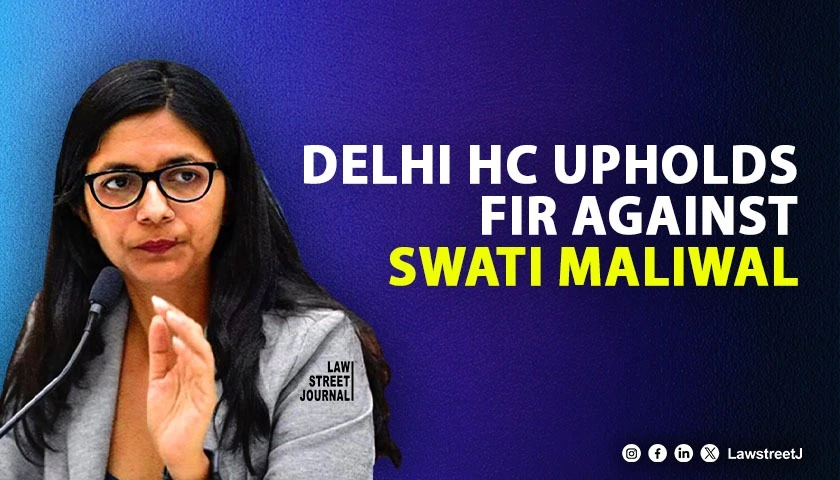New Delhi: The Delhi High Court has delivered a significant ruling upholding an FIR against the former Chairperson of the Delhi Commission for Women (DCW), emphasizing the importance of protecting the identities of minor victims in sensitive cases.
Justice Neena Bansal Krishna and the Delhi High Court made crucial observations regarding the disclosure of victim identities and its legal implications.
Delhi High Court Upholds FIR Against Swati Maliwal for Disclosing Minor Rape Victim’s Identity
These subheadings are designed to enhance search engine visibility by including relevant keywords related to the case and its legal context.
The court addressed a writ petition filed by the Delhi Commission for Women, stating, “FIR No. 0356/2016 was registered under Section 228A of the IPC, 1860, which is a cognizable offence. It was only during the investigation that the Consent Letter from the prosecutrix’s parents was produced.”
Legal Implications of Victim Identity Disclosure: Insights from the Delhi High Court’s Ruling on Swati Maliwal’s Case
Regarding concerns about the disclosure of the victim’s identity, the court observed, “A notice was issued to the SHO, which was published in the WhatsApp group of DCW by Sh. Bhupender Singh, Public Relations Officer. It was later circulated to news channels, thereby disclosing the prosecutrix’s name.”
The court underscored the legal framework protecting minor victims’ identities, stating, “Section 74 of the Juvenile Justice (Care and Protection of Children) Act, 2015 […] prohibits newspapers, magazines, news sheets, audio-visual media, or any other form of communication from disclosing the name, address, school, or any particulars that may lead to the identification of a child in conflict with the law or a child in need of care and protection. Any such disclosure constitutes an offence.”
In a specific directive, the court held, “Therefore, there is no ground for quashing FIR No. 356/2016 and the proceedings consequent thereto.”
The court emphasized the necessity of compliance with victim protection laws, including Section 74 of the Juvenile Justice Act, which prescribes penalties of imprisonment for up to six months, a fine of up to two lakh rupees, or both.
The DCW’s advocate argued that the Chairperson was acting in good faith under Section 100 of the DCW Act. However, the court ruled that this defense would need to be established during trial.
The court also noted that the Delhi Legal Services Authority had already disbursed ₹50,000 as compensation to the victim’s parents, with provisions for additional compensation under the Delhi Victims Compensation Scheme, 2018.
Appearing for the Petitioner were Mr. Arun Khatri, Ms. Anushka Bhalla, Ms. Shelly Dixit, and Ms. Tracy Sebistian, while Mr. Sanjeev Bhandari, Additional Public Prosecutor, represented the State.
Case Title: Delhi Commission for Women vs. State of NCT Delhi & Ors.



![Delhi High Court Sets Aside Arbitral Tribunal's Award Against NHAI in Highway Project Delay Case [Read Judgment]](/secure/uploads/2023/07/lj_9605_23374c2e-392c-4491-a2fe-f2f12fc5272f.jpg)
![Delhi Court Rejects Stay Request in Defamation Case Against Rajasthan CM Ashok Gehlot [Read Order]](/secure/uploads/2023/08/lj_5208_80de1ddc-d76a-4f7f-b180-408e3ae14fb4.jpg)





